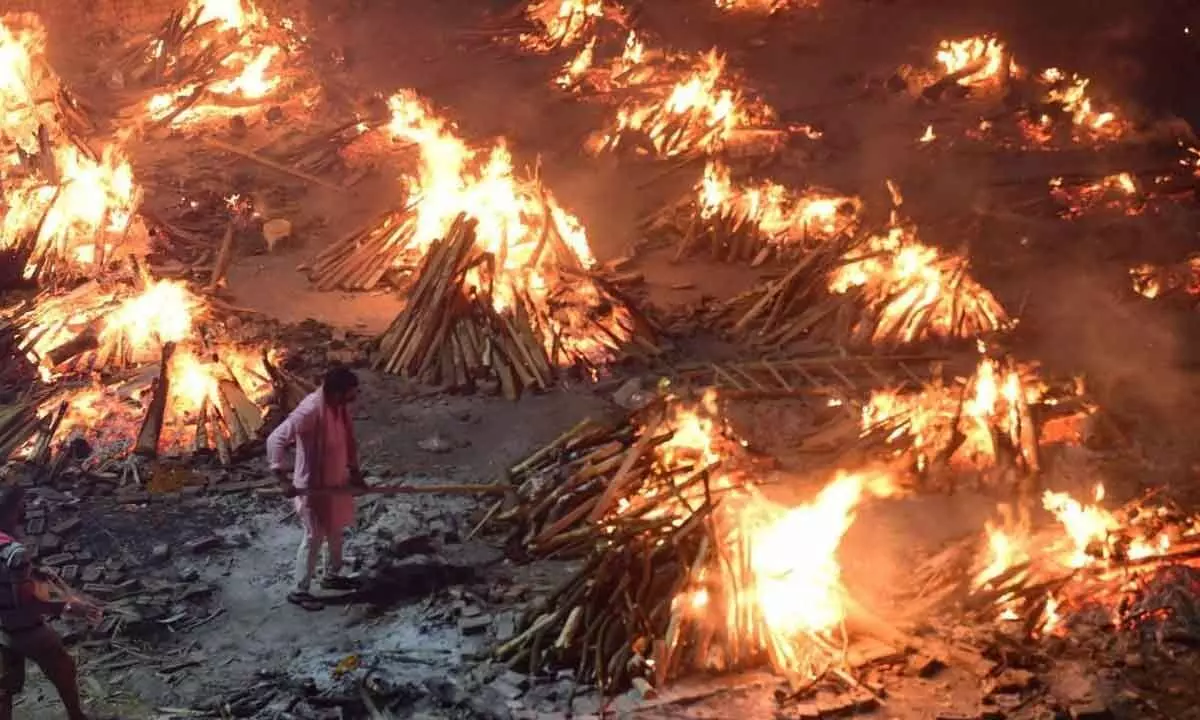'40Lakh Covid' deaths: 'India stopped WHO to make it public'

Concerns with method, says India on report of stalling WHO report
New Delhi: Terming it "flawed," the government has questioned the World Health Organization's (WHO) methodology for estimating the deaths caused by Covid-19 in India, media report says.
According to the New York Times, the Indian government said that the WHO's methodology to estimate the deaths caused by Covid-19 in India is flawed.
"India feels that the process was neither collaborative nor adequately representative," the Indian government was quoted as saying in a statement to the United Nations Statistical Commission in February.
Congress leader Rahul Gandhi on Sunday claimed that 40 lakh Indians died during the coronavirus pandemic due to the government's "negligence" and once again demanded that all families of the deceased be given Rs four lakh compensation each.
Taking to Twitter, Gandhi shared the screenshot of a New York Times report which claimed that India is stalling the WHO's efforts to make global Covid death toll public. "Modi ji neither speaks the truth, nor lets others speak. He still lies that no one died due to oxygen shortage!" Gandhi charged in a tweet in Hindi along with the screenshot of the report. "I had said earlier also – due to the negligence of the government during Covid, not five lakh, but 40 lakh Indians died," the former Congress chief said
According to the report, the global death toll from the pandemic has found that vastly more people died than previously believed -- a total of about 15 million by the end of 2021, more than double the official total of six million reported by countries individually.
But the release of the staggering estimate has been delayed for months because of objections from India, which disputes the calculation of how many of its citizens died and has tried to keep it from becoming public, the report said.
More than a third of the additional nine million deaths are estimated to have occurred in India, where the government has stood by its own count of about 520,000, it added.
The WHO will show the country's toll is at least four million, according to people familiar with the numbers who were not authorised to disclose them, which would give India the highest tally in the world, they said.
The Times was unable to learn the estimates for other countries.
The WHO calculation combined national data on reported deaths with new information from localities and household surveys, and with statistical models that aim to account for deaths that were missed.
Most of the difference in the new global estimate represents previously uncounted deaths, the bulk of which were directly from Covid; the new number also includes indirect deaths, like those of people unable to access care for other ailments because of the pandemic.
The delay in releasing the figures is significant because the global data is essential for understanding how the pandemic has played out and what steps could mitigate a similar crisis in the future.
According to the report, India has not submitted its total mortality data to the WHO for the past two years, but the organisation's researchers have used numbers gathered from at least 12 states.
Jon Wakefield, a professor of statistics and biostatistics at the University of Washington who played a key role in building the model used for the estimates, said an initial presentation of the WHO global data was ready in December.
"But then India was unhappy with the estimates. So then we've subsequently done all sorts of sensitivity analyses, the paper's actually a lot better because of this wait, because we've gone overboard in terms of model checks and doing as much as we possibly can given the data that's available," Wakefield said.








